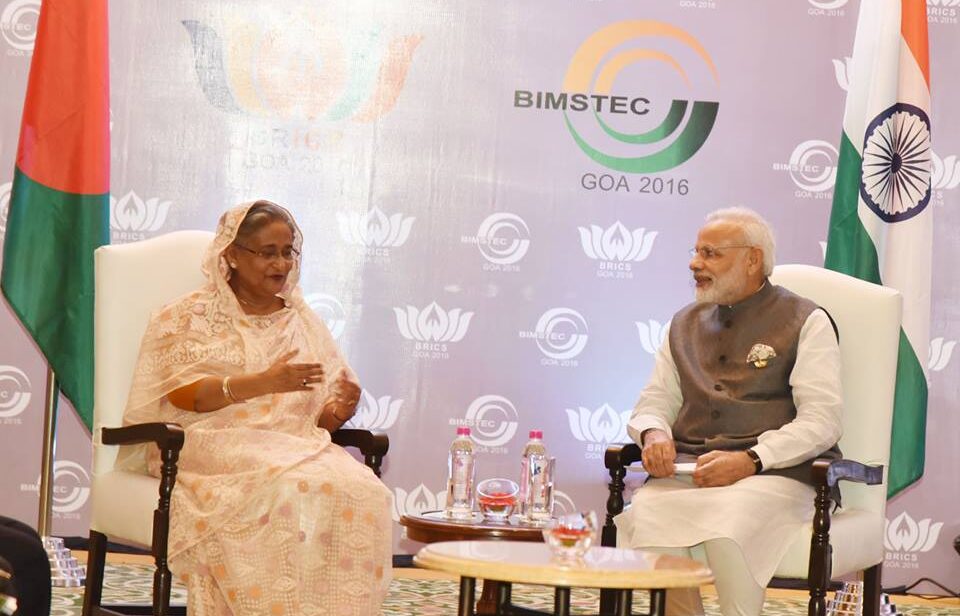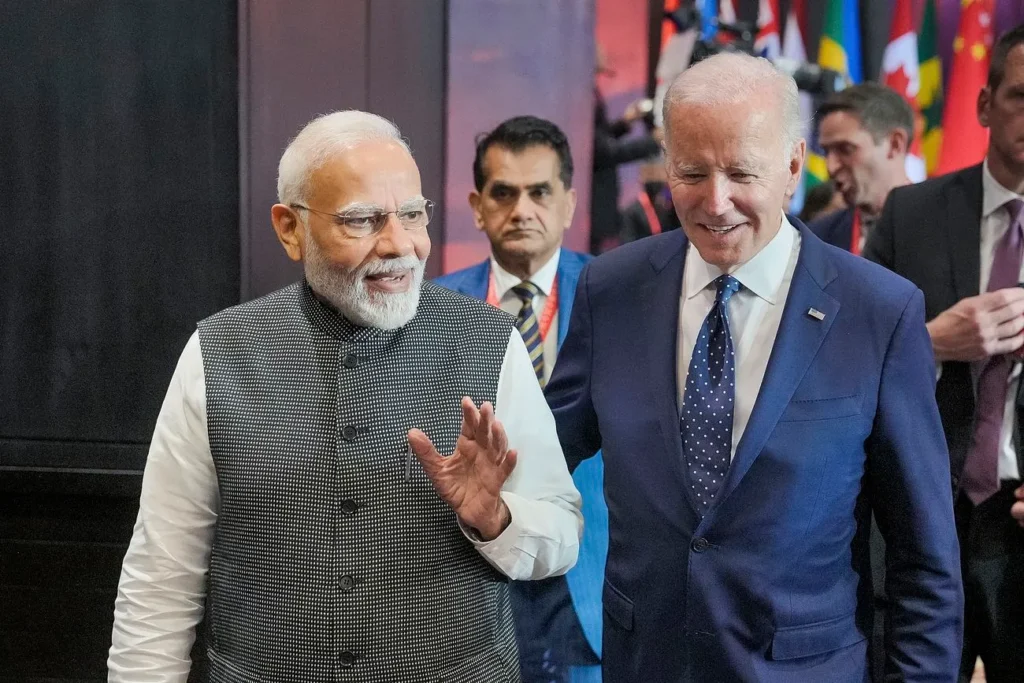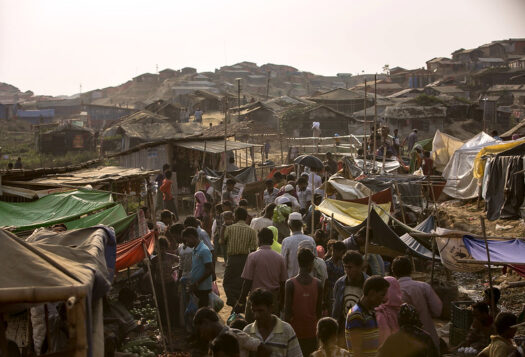
Bangladesh is slated to attend the G-20 summit on September 9 and 10. With India at the helm of the G-20, Bangladesh’s membership in the summit ushers in a host of opportunities. Dhaka has earned laurels for its advocacy of the Global South, climate change, and women’s development projects. These issues feature prominently in the G-20 summit— allowing the country to boost its image among member countries. The summit also will enable Bangladesh to engage in sideline diplomacy by courting non-traditional partners, scoring diplomatic breakthroughs, and assuaging diplomatic tensions.
Explaining Bangladesh’s Inclusion into the G20 Summit
Countries are invited to the G20 Summit by the president. The outreach is aimed at broadening domains of cooperation with guest countries and augmenting the legitimacy of G20. Several factors could explain why Dhaka was invited to participate in this year’s summit. First, Bangladesh is India’s largest trading partner and export market in South Asia. Bangladesh’s growing economy holds immense potential for India. Second, the country is located close to the landlocked states in northeast India, and access through Bangladesh significantly decreases connectivity constraints with the restive northeastern region. Additionally, Dhaka maintains its “zero-tolerance” policy towards terrorism, which helps India curb its northeastern secessionist movements. Finally, Bangladesh is positioned at the juncture of South and Southeast Asia, making it a core pillar of India’s Act East policy.
Regionally, Bangladesh links South and Southeast Asia—two regions that have gained significant prominence in political and strategic calculi. Also, the country lies at the heart of the Bay of Bengal, which ensures its pivotal positioning in regional and international commercial and trade activities. Bangladesh’s strategic positioning at the apex of the Bay of Bengal renders Dhaka a connector and facilitator between regions and contending powers. The country is also proximate to the Indo-Pacific region’s strategically significant trade routes and chokepoints, further augmenting its regional importance.
Bangladesh has been invited as a gesture, signaling the country’s rising significance to India. As India seeks to formulate a global agenda through G20, procuring Dhaka’s support is essential to cement India’s position in its neighborhood. Bangladesh could leverage its partnership with India to build a stronger network for international economic cooperation. Engagement during the G20 with traditional and non-traditional partners can unlock short-, medium-, and long-term economic gains for Dhaka.
Bangladesh could leverage its partnership with India to build a stronger network for international economic cooperation.
Advocacy for the Global South
The Global South is confronting a myriad of crises. The Ukraine-Russia war sharpened the conflict between the two opposing global camps and constrained the space for the Global South. The geopolitical situation worsened, and the cumulative toll of Ukraine and the COVID-19 crisis unfurled a host of challenges, including the securitization of energy and food, and a steady transition to renewable energy sources.
India’s growing economic, military, and technological strength positioned it as the mouthpiece for the Global South’s challenges. India could mobilize its vast panoply of robust regional and global linkages to form a united front for the Global South. On some pressing questions with global implications—such as the energy transition and climate change calamities—India can take a robust stand supporting the interests of the Global South, which will further bolster India’s position as a trustworthy and reliable leader of the region.
While Bangladesh has previously taken a neutral stance in critical geopolitical issues, such as the Ukraine-Russia war, it can no longer afford to do so. Foreign Minister AK Abdul Momen stated, “Bangladesh is squeezed by great power politics.” Specifically, global geopolitical issues such as the Ukraine-Russia war have resulted in food and energy securitization. These developments have inflicted a toll on the Bangladeshi people, resulting in galloping inflation, skyrocketing to 9.69 percent in July. Since India is already well-placed to advocate for countries in the Global South, the combined advocacy of the two countries would provide strength in numbers and is more likely to convince other G20 members to take the concerns of Global South countries seriously.

Tapping into a Multilateral Network
Bangladesh can score considerable gains during the G-20 summit by categorically stating its vision for the future global order and voicing its stance in the era of geopolitical turmoil. The G20’s agenda emphasizes cooperation on a host of issues. Bangladesh has distinctive credentials in green energy development, climate finance, resilient economic growth, accelerating SDG progress, technological transformation, digital public infrastructure, and women-led development.
Bangladesh is considered a core green development and climate finance stakeholder since it is vulnerable to climate crises. Bangladesh has represented the interests of climate-vulnerable countries in multilateral forums such as COP and vigorously promoted the rights of climate-vulnerable nations. Bangladesh’s advocacy of climate issues in the G20 might further calibrate Bangladesh’s image as a climate-conscious country. Another important agenda for discussion at the Summit is inclusive and resilient growth. Bangladesh’s economy was touted as resilient when it registered growth even during the COVID-19 pandemic.
Bangladesh’s advocacy of climate issues in the G20 might further calibrate Bangladesh’s image as a climate-conscious country.
Given the broad spectrum of participation in the G-20 summit regarding geographic representation, Bangladesh can engage in sideline diplomacy at the summit. It might forge connections with non-traditional partners, such as Egypt, Mauritius, and Comoros. Despite their immense potential for economic and trade partnerships, Bangladesh has yet to explore bolstering relations with these countries. However, Bangladesh needs to broaden its economic and trade partnerships as the country is set to graduate from its status as a less-developed country. Furthermore, while core agendas limit bilateral engagements, multilateral platforms are flexible and can offer vigorous communication on various issues. Bilateral interactions are also limited among traditional partners, while multilateral platforms present an opportunity to make overtures and strike ties with new and unconventional partners.
Advancing Bilateral Diplomacy
Bangladesh’s participation in the G20 Summit may be a milestone in its bilateral relationship with India. Bangladesh is set to inaugurate three major infrastructure projects; notable among these is a powerplant with financial assistance from India. Furthermore, Bangladesh and India will discuss procedures of the Taka-Rupee exchange system that will boost bilateral economic relations through streamlining trade and economic ties. Also, the visit might feature a discussion on connectivity issues between Bangladesh and India and help streamline other projects under India’s line of credit.
Given recent strains in bilateral relations between Bangladesh and the United States, arranging sideline diplomacy with India as an interlocutor might significantly improve the bilateral situation and obviate differences. There were reports that India insisted that the U.S. temper its hardline stance on the present regime in Dhaka. These issues will likely resurface in the forthcoming summit and the trilateral interactions between Bangladesh, the United States, and India. As a regional stakeholder with harmonious ties with Bangladesh, India might be incentivized to reconcile the differences between Bangladesh and the United States.
Conclusion
Attending the G20 may confer Bangladesh three advantages. First, the visit will enhance bilateral ties between Bangladesh and India. Second, Bangladesh will likely promote the Global South’s interest. Third, Bangladesh might strike ties and forge connections with non-traditional partners, further broadening Bangladesh’s diplomatic scope. The G-20 summit may provide Bangladesh with the leverage to further bolster its ties with traditional relationships, as well as make friendly overtures to other non-traditional partners. This is particularly significant as Dhaka seeks to broaden its partners at a conjuncture where the country is set to graduate from its lesser-developed country status, which will shorn the country of the privileges it previously enjoyed.
Also Read: Bangladesh is Forging Ahead with a Green Foreign Policy.
***
Image 1: Prime Minister Narendra Modi meets PM Sheikh Hasina via Wikimedia Commons.
Image 2: Prime Minister Narendra Modi and Joe Biden via Canadian Affairs.


